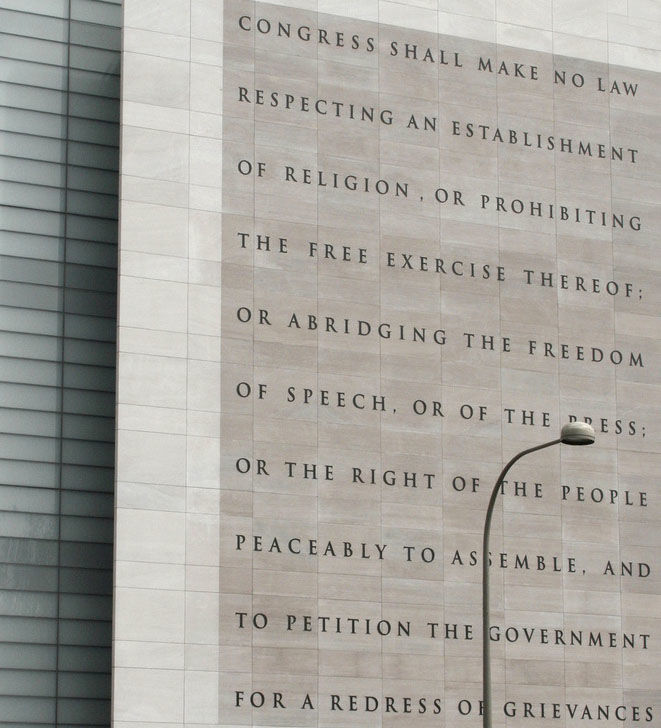Westberg: First Amendment comes with many complexities
April 9, 2019
Free speech is vaguely defined in the First Amendment of the constitution.
Many believe that the people who wrote the constitution did this on purpose because they knew that times would change but they didn’t want to add a new amendment every five years.
The premise of the First Amendment states that the people of the United States have the right to assemble, freedom of the press and overall freedom of speech so long as it does not infringe on anyone else’s rights.
Here at Iowa State, it is First Amendment Days, which is a week-long celebration of the positive change and action that the First Amendment allows us to take.
Although the First Amendment states that the people have the freedom of the press, speech and right to assemble the government and outer organizations implement censorship, censorship is suppressing the content or deeming something unsuitable for public access.
Many things that are censored contain sexual or graphic content, but this means that people can be lacking in rea life information. For example, some schools don’t teach sex education even though it is required by the government because they are private organizations.
However, those schools still have to meet the standards in teaching math, science and English in order to be considered “a proper education.”
Censorship has also been an issue surrounding banned books. One of the books that have recently come out of the “banned books” pile is “To Kill a Mockingbird.” The book was originally banned for its historically accurate dialect and it was deemed unsuitable for the new generations. While the word used that caused it to be banned is extremely offensive and should not be used in today’s world, in the time of the book, it is what was used. Banning this particular book but still allowing TV shows and movies to use that word also sparked a controversy as to where to draw the line.
There are many opinions regarding the First Amendment.
Some of which say that free speech should be controlled by the government and some of which say that free speech should be in the hands of the people without government interference. There are many more theories of the interpretation of the First Amendment, however, these are two very prevalent ones. Absolutism has two sides to it. One side of absolute absolutism says there should be no constraints on free speech. The other side is qualified absolutism, which says that speech is always free but within certain regulations.
Over the years, there have been many Supreme Court cases in reference to possible violations of the First Amendment ranging from refusing to make a cake for a homosexual couple, to peacefully protesting with armbands and even names of bands.
Two of the previously mentioned court cases have had visitors and representatives come to Iowa State to speak on behalf of their experience fighting the Supreme Court.
I had the privilege of speaking to Simon Tam, lead bass player for the Asian-American dance rock band The Slants. Simon Tam and his band members ran into a problem when trying to trademark their name when the government said that they could not trademark it because of it being considered racist.
The band sprung to action and got the case approved to be heard in the supreme court eventually winning.
When I asked Tam what the First Amendment meant to him he said, “I believe that at its core, expression is a human right. Therefore people should realize the rights that they do have within this country and how they can better protect it to expand their knowledge of [the First Amendment].”
He also said, “I think that expression allows us to be our truest selves by claiming our own identity. We get to choose the language or religion or basically whatever we want. It’s the freedom to be yourself, and that’s why it’s so important to me, and should be to everyone else.”

















